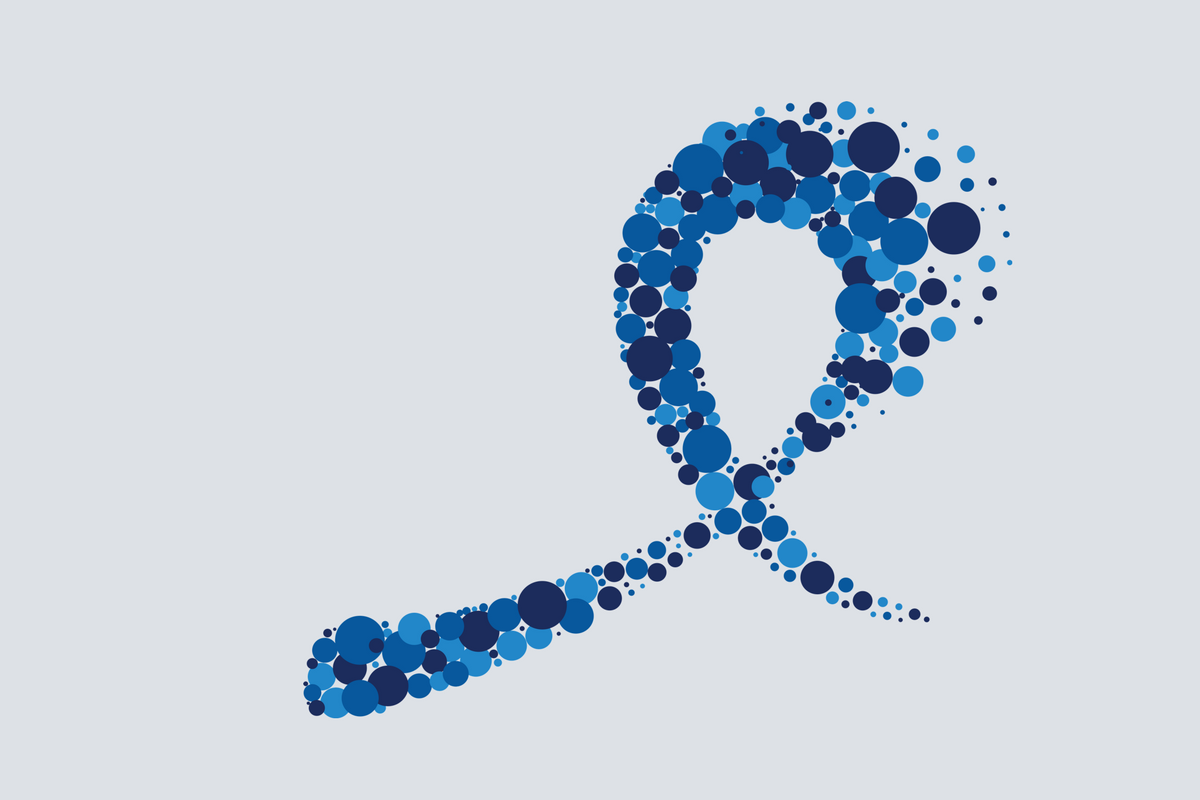Colorectal cancer can be prevented or treated successfully when caught early up to 92% of the time, yet it is still the third leading cause of cancer death in the U.S.
Why?
“People don’t get their screenings when they should,” says colorectal surgeon Dr. Shauna Lorenzo-Rivero. It’s as simple as that.
“Colon cancer is asymptomatic — meaning, there are usually no signs of the disease until it has spread very far. That’s why we do screenings.”
As most people know, the most common screening for colorectal cancer is the colonoscopy, which uses a camera on a long flexible tube to allow the doctor to see inside the colon and rectum. The patient is sedated, so there is no pain involved during or after the procedure. Since colorectal cancer usually starts as a polyp (a small abnormal growth), if one is detected during this screening, it can be removed immediately before it develops into cancer.
The value of a colonoscopy is undeniable. Awareness of colorectal cancer has increased in recent years, with screening rates rising and death rates falling. Still, the numbers show that there is more to do.
In Tennessee, only 67% of people get the recommended screenings on schedule.
But other paths to prevention are also key. Changes in diet, activity and certain lifestyle behaviors can reduce the risk of developing colorectal cancer.
Here’s what you need to know about prevention and detection.
Who needs to schedule a colorectal cancer screening?
Risk increases with age and family history. The American Cancer Society recommends screenings:
- Start at age 50, every 10 years for men and women at average risk (no family history of polyps or colorectal cancer)
- Start at age 40, every 10 years for people with family members who had colorectal cancer or polyps at age 60 or older
- Start at age 40, or 10 years before the youngest case, every 5 years for people with family members who had colorectal cancer before age 60
Some people at increased risk due to genetic factors or certain diseases should be screened for colorectal cancer earlier or more often. Check with your doctor to see if you are one of them.
Between screenings, what are the reasons to see a doctor?
Though colorectal cancer often has no symptoms in early stages, go to a doctor if you experience:
- A change in bowel movements that lasts for more than a few days (constipation, diarrhea, narrow stools)
- The feeling that you need to have a bowel movement, but experiencing no relief after having one
- Rectal bleeding
- Blood in the stool
- Cramping or belly pain
- Weakness
- Unintended weight loss
Can a healthy diet help prevent colorectal cancer?
“There is no research to prove there is one thing you should eat to prevent colon cancer,” says Dr. Lorenzo-Rivero, “but I can tell you what you should not eat. We do know that meats, and particularly charred meats such as grilled and barbecued meat, cause mutations. A high red-meat diet puts you at a higher risk.”
“We also know that fiber is protective, and we should be getting 25–30 grams of fiber each day,” she says. “We know folate from green leafy vegetables is protective, too.”
Put simply:
- Add more fruits and vegetables to all meals
- Eat fewer fried foods
- Eat less processed food
- Eat red meat in moderation
What’s the role of fiber?
Studies have repeatedly shown that increased fiber reduces the risk of colorectal cancer. This may be because when it’s digested, it produces a substance that inhibits tumor growth. Another theory is that it helps waste, which may contain carcinogens (cancer-causing substances), move through the colon more effectively.
Most Americans don’t get enough fiber, and that’s particularly true for people who don’t eat a lot of fruits, vegetables and whole grains.
In order to reach the recommended daily amount of fiber, you should eat 2-3 servings of fruits and vegetables with every meal. An apple a day will help, but at just 5 grams of fiber, it won’t cover what you need. And remember: if you increase your fiber intake but don’t drink 8 glasses of water a day, you may experience bowel problems.
Living healthy
Too often, death from colorectal cancer might have been avoided with lifestyle changes and regular colonoscopies. Make your own health a priority and you’ll feel better overall.
“I want people to know that diet and exercise are very important,” says Dr. Lorenzo-Rivero. “The human body was designed to eat certain foods and to require maintenance, which is exercise. If you do that, your body should last a long time and serve you well.”
Get more information about specific health terms, topics and conditions to better manage your health on bcbst.com. BlueCross BlueShield of Tennessee members can access wellness-related discounts on fitness products, gym memberships, healthy eating and more through Blue365®. BCBST members can also find tools and resources to help improve health and well-being by logging into BlueAccess and going to the Managing Your Health tab.






WellTuned provides inspiration and practical advice for healthy living.
WellTuned does not offer medical advice. Any personal health questions should be addressed to your doctor.